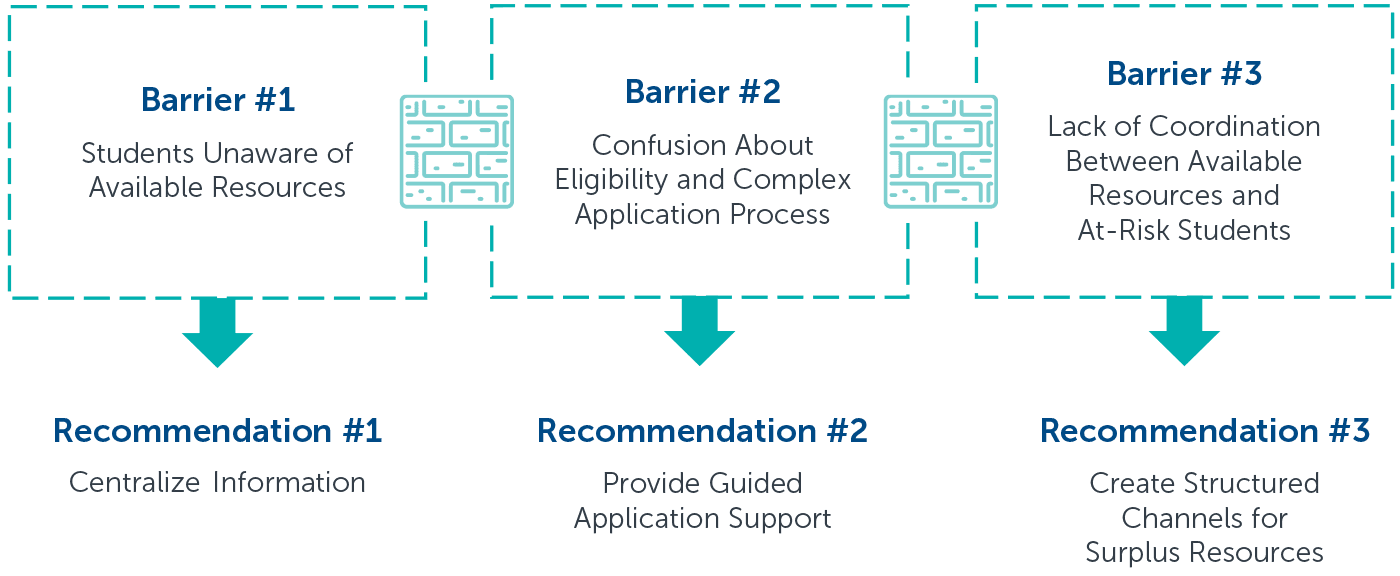Address Student Basic Needs: Food and Housing Insecurity
Growing numbers of students are struggling with food or housing insecurity. Students can’t be expected to achieve academic success or personal wellness until their basic needs are met. Supporting food and housing security on campus should be a crucial priority for student affairs officers and other senior campus leaders.

Educate campus leaders about the issue
Today, more than one-third of students on campus are struggling with food or housing insecurity. Students cannot be expected to achieve academic success or personal wellness until their basic needs are met. Supporting food and housing security on campus should be a crucial priority, but presidents, provosts, board members, and other senior campus leaders can be unaware of the challenges students face and how these challenges can impact their success.

Streamline access to support
There are easy ways to strengthen support for students experiencing food insecurity. Break down barriers preventing students from accessing existing support on campus and in the community; then, create structured channels to connect food-insecure students to surplus campus resources.


Create referral mechanisms for campus partners
From campus dining and recreation to financial aid, staff across campus regularly encounter students who are experiencing food or housing insecurity. Make sure these frontline partners know how to connect students with resources such as the campus food pantry, emergency fund, or community food banks.

Scale up campus services
As more and more students face basic needs insecurity, colleges and universities should be prepared to scale resources to address growing demand. Make sure you have sustainable infrastructure, including funding or staffing, to support increased need.

Now that you've read the roadmap

This resource requires EAB partnership access to view.
Access the roadmap
Learn how you can get access to this resource as well as hands-on support from our experts through Strategic Advisory Services.
Learn More